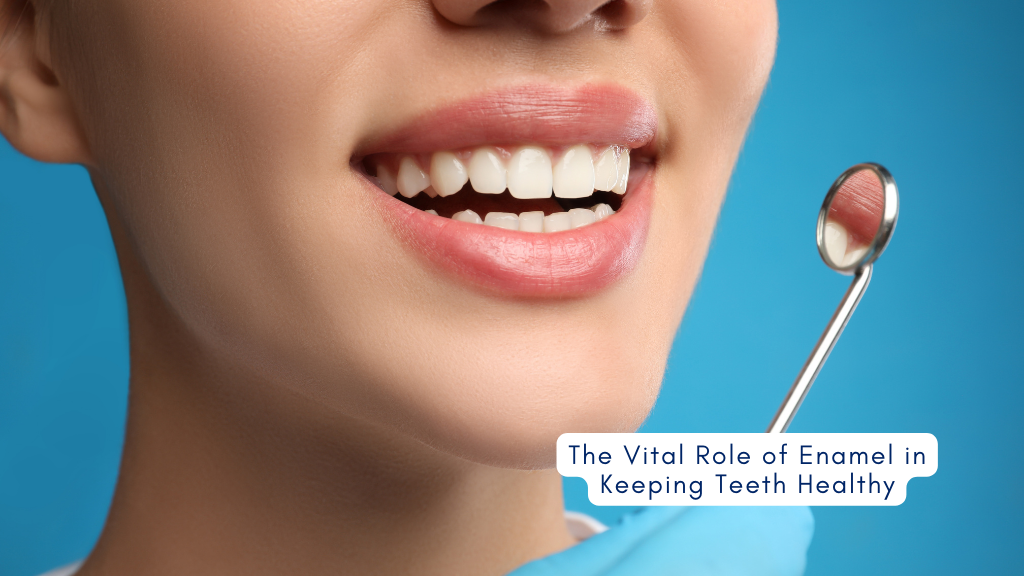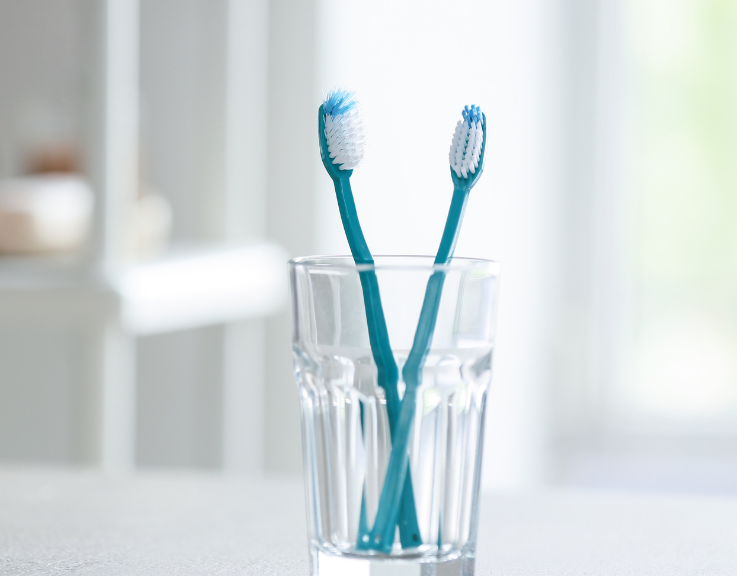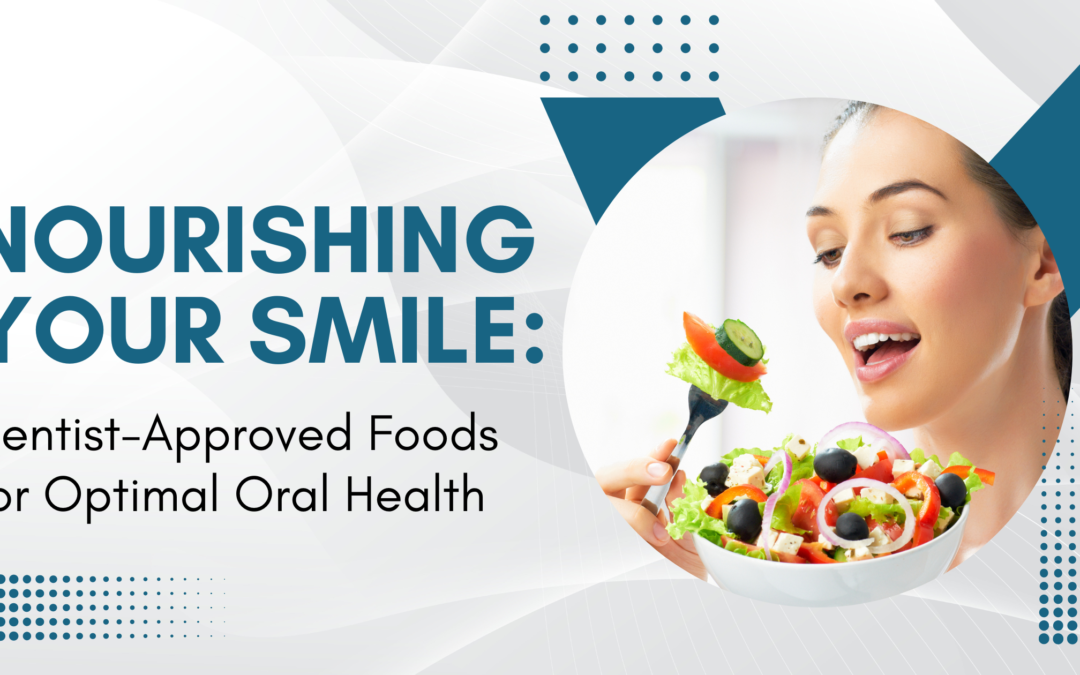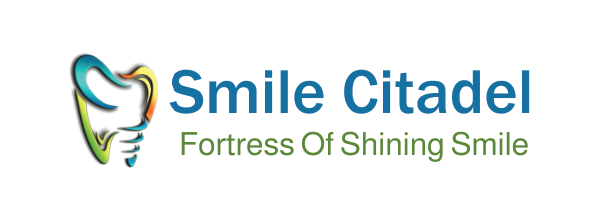
by smilecitadel.com | Mar 15, 2024 | Dental Care
Our teeth do more than just give us a beautiful smile; they are essential for biting and chewing our favorite foods, and they also help us express joy through our smiles. However, the enamel is the leader of this group of dental superheroes, as it acts as a protective shield that plays a crucial role in maintaining our dental health.
The crown is the exposed portion of our teeth, which is covered with a layer called enamel. It is like the shield that covers our teeth from the impact and stress of everyday activities. Despite being extremely friable, enamel is tough and durable, ultimately acting as a primary barrier against the risks our teeth face.
The key to enamel strength is not in its building but rather in its composition. Roughly composed of hydroxyapatite, a crystalline mineral, the enamel is hard enough to stand against the force of chewing and what is outside the tooth. In this way, this mineral makeup is unique to enamel and gives it its superhero-like super durability.
Our teeth face a lot of nutritional dangers on a daily basis, such as acidic drinks and sugar-rich chewable sweets. These adversaries can weaken the enamel and make it more susceptible to breakdown. It’s important to take care of the originality of enamel and learn how to protect it from these factors.
Becoming Enamel’s Ally
Maintaining strong and healthy teeth requires loyalty to your enamel. Oral health professionals suggest using fluoride toothpaste to brush your teeth regularly, which removes harmful bacteria and plaque that can damage the enamel. Additionally, avoiding sugary and acidic foods and drinks can also help protect your enamel and keep your teeth healthy.
Preventing Enamel Erosion
While enamel erosion is a common concern, preventive measures can ease the problem. Reducing acidic food and drink consumption, observing balanced eating habits, and ensuring proper oral hygiene care are vital to maintaining enamel strength and vigour.
Regular Check-ups: A Defender’s Strategy
It is recommended that even superheroes take the time to prioritize their health. Regular dental appointments offer professionals the chance to check the condition of the enamel, identify any potential issues, and administer preventive treatment. These proactive measures aid in the early detection of enamel threats and aim to eliminate them before they escalate into more serious problems.
Sum up
Although enamel is completely silent in its function, its part in maintaining our dental health is far from silent. We have a proper motive to preserve this protective covering through an appreciation of the essential function that enamel plays in protecting us. Therefore, let us conserve good oral hygiene practices and be aware of our nutritional intake. And allow the enamel to remain the silent warrior as we go about our daily dentistry adventures.

by smilecitadel.com | Dec 12, 2023 | Dental Care
Gingivitis is a common but often neglected dental ailment that can seriously affect oral health. This article will explain what gingivitis is, what causes it, what symptoms it has, and, most importantly, how to prevent and treat it for a better smile.
Gingivitis is an inflammation of the gums that is usually brought on by the buildup of plaque, which contains bacteria, on the teeth. Gingivitis can grow into more serious gum disease and eventually tooth loss if treatment is not received.
Causes of Gingivitis:
- Poor Oral Hygiene: Improper oral hygiene is the main factor contributing to gingivitis. Plaque can accumulate on teeth and gums if you don’t brush and floss on a regular basis.
- Smoking and Tobacco Use: One of the main risk factors for gingivitis is tobacco usage. It affects immunity, making it more difficult for the body to fight illness.
- Poor Nutrition: Gum inflammation can be increased by a diet deficient in vital nutrients, which can weaken the immune system.
- Medical Conditions: Gingivitis risk is increased by a number of conditions, including autoimmune disorders and diabetes.
Symptoms of Gingivitis:
- Bleeding Gums: Blood in the gums, especially during brushing or flossing, is one of the early indicators of gingivitis.
- Red and Swollen Gums: Gums in good health are firm and pink. Often, gingivitis results in redness and swelling.
- Bad Breath: Toxins released by the bacteria in plaque can cause persistent bad breath.
- Receding Gums: The gums may separate from the teeth as a result of gingivitis, resulting in pockets where bacteria can grow.
Preventing and Managing Gingivitis:
- Establish a Good Oral Care Routine: Plaque can be avoided and removed by brushing and flossing your teeth twice a day.
- Regular Dental Check-ups: Make routine dental appointments to avoid missing early warning symptoms of gingivitis and for professional cleanings.
- Quit Smoking: If you smoke, think about giving it up. It improves oral and general health in addition to lowering the risk of gingivitis.
- Balanced Diet: Keep up a vitamin- and mineral-rich diet to strengthen the immune system and promote general oral health.
- Manage Medical Conditions: If you have diabetes or other medical issues, consult with your healthcare professional to manage them properly.
Conclusion:
Gingivitis is a common condition that can be avoided, but it still needs to be treated. People can greatly lower their risk of acquiring gingivitis and preserve a healthy smile by adopting proper oral hygiene practices, changing their lifestyle, and seeing a dentist. Recall that taking good care of your teeth now can help you avoid dental problems later on.

by smilecitadel.com | Nov 24, 2023 | Dental Care
It is necessary to keep up good care routines to ensure a healthy smile and teeth health. When it comes to oral hygiene, one frequently neglected issue is the regular replacement of toothbrushes. This article will analyze why you should change your toothbrush to boost your overall dental health.
Bristle Wear and Tear:
When you use a toothbrush for a more extended period, the tufts on your toothbrush get worn out, losing their ability to cleanse your teeth and gums effectively. If you brush with a worn toothbrush, it may not remove enough plaque and expose your teeth to decay. This is not good for your teeth health.
Reduced Cleaning Efficiency:
The problem with this is that when the tufts get bent and worn, they cannot clean all the corners of our mouths properly. This accumulation may result in plaques that can cause your teeth to be healthy and develop problems like dental decay and gum diseases.
Bacterial Buildup:
Your mouth may contain harmful bacteria, fungi, and viruses that might be residing on your toothbrush. Try to cover your toothbrush with a toothbrush cover, and replacing the toothbrush frequently minimizes the chances of re-entering these microbes in your mouth while brushing.
Fresh Breath:
Your tongue and mouth might miss some areas that an old toothbrush won’t be able to reach, which can end up causing bad breath. You could still maintain a fresh breath by changing your toothbrush often.
Preventing Cross-Contamination:
Toothbrushes are able to preserve germs and viruses when you’ve been sick. If one uses the same toothbrush continuously, they might have symptoms reappearance or transmit the diseases to other people. Buying a new toothbrush can prevent it.
Gentleness on Gums:
New bristles prevent gum wearout as well, thus minimizing the chances of gum injuries and bleeding during brushing.
Better Plaque Removal:
Some new bristles will perform better in getting rid of plaque, one of the main causative factors of carriers and pyorrhea. The freshness of a toothbrush is important in ensuring good oral hygiene.
Whiter Smile:
A new toothbrush with good toothbrush paste can help you keep your teeth white by successfully removing surface stains, giving you a brighter smile.
Optimal Oral Care:
Keep your toothbrush in good working condition by replacing it every three to four months or sooner if the bristles begin to show wear. Better general dental health results from this.
Timely Reminder:
Changing your toothbrush frequently is a good reminder to review your oral hygiene routines.
Wrapping up
This easy habit can protect your oral health while also extending the life of your dental equipment. Include it in your regular routine today. Keep in mind that a new toothbrush is a minor investment that can help you keep your mouth healthy and avoid dental problems. Change your toothbrush on a regular basis; every three to four months, your teeth and gums will repay you with years of good health and a radiant smile.

by smilecitadel.com | Oct 23, 2023 | Dental Care
Welcome to your comprehensive guide to maintaining good oral health! Dental health is an important part of overall well-being, and tooth decay can have a significant impact on not just your teeth but also your overall health. In this guide, we’ll outline the causes and effects of tooth decay and offer practical strategies and tips to keep your teeth healthy and strong.
Understanding Tooth Decay
So, what exactly is tooth decay? Well, it’s more complicated than that calculus class you’re taking! Tooth decay, simply put, is the breakdown of your tooth enamel caused by bacteria in your mouth. These bacteria feast on sugary and starchy foods, producing acids that rot your teeth over time. It’s like a tiny, invisible army wreaking havoc in your mouth.
Signs and Symptoms
Now, how do you know if you’re battling tooth decay? Look out for these signs:
- Toothache: That sharp, throbbing pain that hits you out of nowhere – it’s a red flag!
- Sensitivity: Pay attention if hot or cold foods and drinks make you wince.
- Visible Holes: If you spot little holes or pits in your teeth, don’t ignore them.
- Bad Breath: Persistent bad breath can indicate dental issues.
- Discolored Spots: White, brown, or black spots on your teeth need your attention.
Ways to Overcome Tooth Decay
The fun part is how to beat tooth decay and keep your smile shining.
1. Regular Dental Check-ups
One of the most crucial steps you can take is scheduling regular dental check-ups. Dental check-ups are like academic reviews for your teeth. They help catch potential issues early on, preventing them from becoming major problems. Trust me; dealing with a minor cavity is much easier (and less painful) than a full-fledged toothache during finals week. So visit your dentist regularly.
2. Optimal Oral Hygiene
This one’s a no-brainer. Brushing and flossing are your best friends. Aim for twice-daily brushing and daily flossing. Remember, it’s not just about looking good; it’s about feeling good, too!
3. Balanced Diet
Okay, I won’t lecture you on avoiding sugary snacks and drinks (we all indulge sometimes). But try to balance it with tooth-friendly foods like fruits, veggies, and dairy. They’re not just good for your body but your teeth, too.
4. Fluoride Toothpaste
When picking toothpaste, make sure it has fluoride. Fluoride is like a superhero for your teeth. It helps fight those acid attacks and keeps your enamel strong.
5. Dental Sealants
Sealants are like shields for your molars. They protect those hard-to-reach places where food particles love to hide. If your dentist suggests them, go for it!
6. Limit Acidic Foods
Here’s a student hack – try to limit acidic foods and drinks, especially when studying late into the night. Acid weakens your enamel, and we need that enamel to ace exams, not just for good oral health!
7. Preventive Measures
We should teach these habits to little ones early. Consistently practising preventive measures, like daily brushing, choosing tooth-friendly foods, and attending regular check-ups, is your best strategy for maintaining a healthy and radiant smile. Teaching good dental hygiene from a young age sets them up for a lifetime of healthy smiles.
Conclusion
Remember, dental health isn’t just about appearances; it’s about your overall well-being. We should focus more on our dental care.
Now, go out there, flash that smile, and conquer the world – one cavity-free tooth at a time!

by smilecitadel.com | Oct 23, 2023 | Dental Care
Hey, wonderful readers. Today, we’re going to dive into an exciting topic that sometimes gets overlooked: the powerful impact of diet on our dental health. So, grab your favourite beverage and let’s explore the secrets behind achieving a radiant smile.
Understanding the Relationship Between Diet and Dental Health:
Keeping oral hygiene at the highest level is the primary responsibility of dental students like us. Did you realise that our food can improve or hinder our dental well-being? Deliciously delightful food magically shapes our smiles’ futures!
Say goodbye to the sugar blues:
Ah, sugar – the nemesis of healthy teeth! Contrary to the sweetness we enjoy, our teeth bear the brunt of it. Patient education regarding sugar risks and guidance toward healthy options is crucial. We want fresh fruit sugars and smile when we eat them, while processed sugar does not bring us joy. As a team, we must empower people to bid sugar goodbye.
Crunchy Delights: Nature’s Toothbrushes!
Imagine biting into a crisp apple or crunching on a juicy carrot – these tantalising treats satisfy our hunger and promote dental health. Combining plaque removal and nutrient provision, these foods are perfect for oral health. Be sure to restock these dental saviours during your next trip to the market.
Calcium: Unsung Champions of Teeth Tenderness
While we commonly associate calcium with building robust bones, its significance in oral health is equally important. Protecting teeth from decay, calcium reinforces tooth enamel. Promote the consumption of calcium-abundant dairy items, such as milk, cheese, and yoghurt, for optimal dental well-being. Calcium is an essential mineral that deserves recognition. Let us give it the appreciation it deserves!
Do you recognise the broader landscape of calcium sources beyond dairy products? Other calcium-rich foods include leafy greens, almonds, and tofu; they deserve equal attention. Both dairy and plant-based options offer alternatives for promoting dental health.
The Gum Guardian: Vitamin C
The gums, equally significant to oral health, deserve our attention. We can no longer ignore vitamin C’s role in collagen production, which protects our gum tissues. Teeth are shielded from bacterial threats by a healthy gum seal.
The Power of Probiotics:
Consuming fermented foods like yoghurt supports the growth of beneficial probiotics in the mouth. Preventing bacterial growth halts any progression towards tooth decay and gum disease through this action. Incorporate probiotic-rich foods into their diet, such as yoghurt with live cultures or fermented vegetables, to encourage a healthier mouth.
Stay Hydrated for a Happy Mouth:
What could be more spectacular than retaining our body’s superpower through hydration? My advice to our readers as a dental student is to drink plenty of water throughout the day. Not only does water remove food particles and neutralise acids, but it also keeps our mouths hydrated, thereby promoting saliva production. By neutralising acids and restoring minerals, saliva supports the health of the mouth and teeth. For fresh and radiant smiles, hydration remains of paramount importance.
Conclusion: Empowering everyone for Lifelong Smiles
Radiant smiles can be revealed with proper diet and oral care. Through this knowledge transfer, we inspire our readers to make savvy dietary decisions, henceforth boasting a beaming smile of optimum health and confidence.
We can inspire our readers toward brighter smiles by illuminating the connection between diet and oral health. Oral hygiene extends beyond more than deep cleaning teeth and flossing – it’s about mindful eating and making choices that promote dental wellness. Keep shining your passion for dental health, and watch those smiles light up!

by smilecitadel.com | Aug 24, 2023 | Dental Care
Greetings, smile enthusiasts! We’re diving into the world of oral awesomeness, where a gleaming grin is more than just dental diligence—it’s a window into your overall vitality. As we juggle toothbrushes, floss, and those indispensable dental visits, let’s not forget that what we munch on can be a secret weapon in nurturing our smiles. Just like some foods can send your teeth on a tumultuous journey, others are like little nourishing hugs for your pearly whites. In this article, we’re unwrapping a delectable selection of dentist-approved foods that are here to boost your oral health game and gift you a splendid smile.
1. Crunchy Munchies: Fruits and Veggies that Wow
Ever heard the buzz about nature’s toothbrushes? We’re talking about the delightful crunch of apples, carrots, celery, and bell peppers. These vivid treats aren’t just Instagram-worthy; they’re superstars of oral well-being. Their crisp bite triggers a saliva symphony, neutralizing acids and sweeping away leftover food bits. And hey, the sheer act of chewing them acts like a mini-cleanse, giving your teeth a spa day and your gums a sweet massage.
2. Dairy Delights: Milk It for Strong Teeth
Say cheese—literally! Milk, cheese, and yogurt aren’t just creamy comfort foods; they’re a dental dream team. Loaded with calcium and phosphates, these dairy dynamos are the VIPs of strong teeth and bones. Calcium swoops in for enamel TLC, while phosphates keep mouth pH levels on the chill, minimizing the chances of cavities. Plus, yogurt’s probiotic posse adds a microbial dance to your oral ecosystem, ensuring your gums stay groovy.
3. Leafy Green Goodness: Some Veggie Vibe for Your Smile
Green is not just for your eco-friendly soul; it’s for your smile too! Spinach, kale, and Swiss chard don’t just have vitamin and mineral street cred; they’re also bursting with fiber. These multi-taskers team up to promote oral harmony. Fiber gets a toothy scrub going and salutes saliva, while the vitamins and minerals (like vitamin A and folic acid) throw a gum party, ensuring tissue repair and gum health are the guests of honor.
4. Protein Power: Meats that Mean Business
Chicken, turkey, fish, and tofu—you’ve got a seat at the dental table. These lean protein powerhouses bring phosphorus to the party, a mineral that’s BFFs with calcium in the strong teeth and bones department. Like calcium’s trusty sidekick, phosphorus kicks off the remineralization rally and helps patch up any enamel scratches.
5. Nutrient-Packed Nibbles: Nuts and Seeds Sensation
Snacking on nuts and seeds isn’t just good for your inner nutty professor—it’s a nutrient fiesta for your mouth. Packed with vitamins like E, magnesium, and zinc, these crunchy wonders are like little mouth superheroes. They’re all about gum health, tissue TLC, and an immunity boost. Chewing them? Well, that’s like hitting the saliva jackpot, as it fights off the dreaded tooth decay villains.
6. Hydration Celebration: Water Wonders
Raise your glasses—of water, that is! Staying hydrated is like giving your oral health a high-five. Water washes away those lingering food guests, bids adieu to acids, and keeps the saliva stream flowing smoothly. And if your water is blessed with a dose of fluoride, it’s like giving your teeth a shiny new armor against cavities.
7. Green Tea Gratification: Sip and Smile
Green tea isn’t just your caffeine fix; it’s your oral guardian. Its secret weapon? Catechins—natural marvels that take down harmful bacteria like a superhero showdown. With regular green tea sips, you’re signing up for fresher breath and a mouth that’s bursting with health.
8. Cranberry Charm: Berry Bounty for Your Smile
Cranberries are the unsung heroes of your oral tale. These little gems pack polyphenols that dance to a different beat—stopping bacteria from clinging to your teeth and gums. Less cling, less plaque, less gum trouble. Just remember, opt for the unsweetened variety to keep sugar woes at bay.
In the End, It’s All About Balance
Your diet is like the canvas for your oral masterpiece, but remember, it’s a masterpiece that’s a team effort. The tooth-boosting foods we’ve dished out—crunchy goodies, dairy delights, leafy legends, protein pals, nutty nuggets, watery wonders, tea-time triumphs, and cranberry conquests—are your wingmen on this journey. But don’t leave out the golden trio of brushing, flossing, and those dental dates. Teamwork makes the dream work, and in this case, it’s the recipe for a stunning smile that whispers tales of health, happiness, and radiance.






